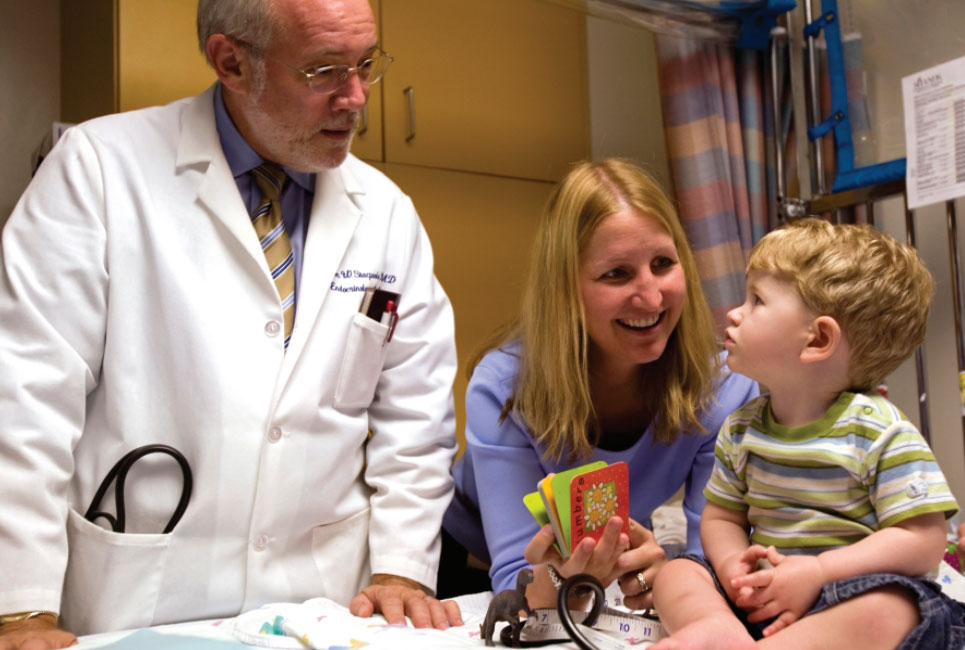
I keep a cartoon that means a lot to me. It was done in the style of “The Far Side,” and it shows a formidable-looking T-Rex threatening a tiny mouse. And the T-Rex is saying, “Me, change … Never! Look at these teeth. I’m going to live forever, man.”Suffice to say that time wasn’t kind to the dinosaurs. The lesson, of course, is that clinging to old ways, even when they work, may not be the best strategy for the longer haul.Not long ago, the medical research enterprise at UF could have taken the same brash attitude as my cartoon’s T-Rex. After all, total research revenue at UF was climbing each year. Certainly there was room for improvement, but it was also hard to complain as contracts and grants reached and then exceeded $500 million.But change was in the air and UF took action, resulting in the announcement in July of nearly $26 million coming to UF over the next five years through a National Institutes of Health initiative called the CTSA — the Clinical and Translational Science Award.Four years ago, when this program was announced, people at UF and academic health centers around the country realized that what we do, and how we do it, was about to undergo fundamental and irrevocable change.The objective of the CTSA program was nothing less than to transform clinical and translational research throughout the United States.We asked ourselves some very hard questions. How will we adapt? Will we succeed or fail in seizing the opportunities offered by this change? And how will we use these opportunities to create a new environment — one more diversified, compelling and successful than the one in which we lived?Why is such a program important?Because there is a critical need to improve the way in which scientific discoveries are converted, or “translated,” into practical applications for the diagnosis, treatment, prevention and cure of human disease.Indeed, the benefits of clinical and translational research lead directly to new standards of health care and health-care delivery for all citizens.To make itself competitive for receiving a CTSA, UF had to undertake a critical self-examination of the traditional ways it conducted clinical and translational research.
We asked ourselves some very hard questions. How will we adapt? Will we succeed or fail in seizing the opportunities offered by this change? And how will we use these opportunities to create a new environment — one more diversified, compelling and successful than the one in which we lived?
It meant figuring out better ways to capitalize on UF’s size and diversity to speed the process of translating medical research into medical practice. It meant improving the success of technology transfer from UF discoveries to the state of Florida’s developing technology industry.
And it required us to take responsibility for training the next generation of multidisciplinary clinical and translational scientists and research teams.
The competition among universities to obtain a CTSA is very intense. That’s because institutions know that the consequence of being excluded from this elite national network could be a significantly decreased ability to compete for federal research dollars directed toward clinical and translational science. In turn, reduced federal support could mean fewer opportunities for economic development and for the creation of high-tech jobs in the affected region.
That was the challenge — and opportunity — that all academic health centers and their universities faced in 2005 when the NIH launched the CTSA initiative.
The acceptance of our application is a strong endorsement of the approach we’ve taken. We are creating a unique environment involving individuals across 12 UF colleges, our sister health science center in Jacksonville, the giant health-care systems represented by UF and Shands and the Gainesville Veterans Administration hospital, and the statewide extension program run by UF’s Institute for Food and Agricultural Science.
The intellectual home for these activities is the Clinical and Translational Science Institute, or CTSI, established by UF in 2008.
We hope that you will hear a great deal more about the CTSI in the coming years in the form of new discoveries, medical and economic achievements, and the development of new research technologies, all aimed at achieving a common goal: improving the health of Florida’s citizens.


